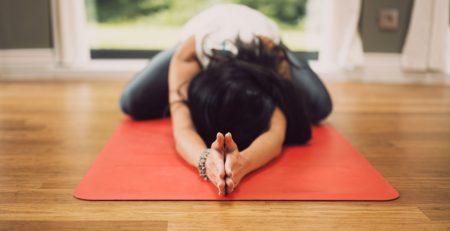How My Spiritual Practice Transformed the Way I Heal and Love
A few months ago, I stumbled upon a video from Oprah where she talks about the power of a spiritual practice. Although I have been meditating for several years, I wasn’t consistent. Besides, I was aware that there is more to be done in terms of healing and growth.
Her words left me wondering. “What if a consistent spiritual practice can significantly transform your life and how you heal and care for yourself?”
This question became the center of my focus, considering the changes I have witnessed in my life. When I meditated, I felt I could handle any challenge. When I was inconsistent, I would be easily triggered and upset.
Meditation is only a part of what we can include in our spiritual practice. Gratitude, yoga, sound healing, smudging, and praying are just a few options for you to design a powerful spiritual practice that suits you and use it to decompress, get centered, feel love and joy, self-regulate or get into ZEN.
Remember that when you learn to quiet the world within you, outside can’t mess with you. If you are on your healing journey or just getting started, I encourage you to create a spiritual practice as solid as a rock- the rock you lean on when you need to.
Intentions behind your spiritual practice
Not just your spiritual practice but also the intentions behind it make a significant difference in how you approach and commit to it.
Don’t look at your practice as something you must do and don’t judge yourself if you slip into inconsistency. Look at your practice as an act of self-love towards yourself. When you sit down to meditate, meditate to take care of your mind. Or when you sit down and write 10 things you are grateful for, do it to take care of your heart.
Having a spiritual practice is a self-love language where you learn what it means to care for and love yourself. It is an essential practice for healing that victims of abuse need to develop.
Our healing happens when we unlearn self-sabotaging behaviors and learn how to care for ourselves most lovingly and compassionately.
How to prepare for your spiritual practice
If you don’t have a practice in place or face a challenge of inconsistency, your first step is to define your spiritual practice. Then, set the time of the day or week you will practice it.
A solid plan is something you need to put in place as a non-negotiable activity unless an emergency happens.
Will you be practicing in the morning or the evening? In what part of your house will you practice? What will you include in your spiritual practice? How much time do you plan to spend on each activity?
Start thinking of your spiritual practice as a new way of life, not an activity to complete or scratch off your to-do list.
Your spiritual practice is how you choose to nurture your soul and spirit. You are transforming how you care for yourself and heal and how you think, feel, and handle challenges.
My spiritual practice
I want to share with you what has been a part of my spiritual practice and how it has supported me throughout my healing and recovery.
Meditation
This is probably one of the best parts of my practice where I learned how to quiet my mind, change my emotional state, and move through my days with more joy and ease.
Although meditation doesn’t necessarily solve my problems or challenges, I can handle them from a calmer and more rational place. In the past, my actions were based on my emotions. Since I had many triggers and faced anger issues, I wasn’t very good at managing them and often handled situations in a way that made me feel guilty or shameful.
Since being consistent with my meditation practice, I have noticed significant changes in my mood and problem-solving skills.
You can use meditation and mindfulness to overcome anxiety, mood swings, and anger issues, access a calmer and more peaceful mind, get in touch with your body and soul, and so much more. In my last podcast episode, I led you through a simple, 10-minute meditation for self-love and self-compassion. Click HERE if you want to try it out.
Gratitude
About a month ago, one of my friends sent me a digital version of the book The Magic by Rhonda Byrne. The entire book is centered around gratitude. Rhonda provides 28 days of gratitude exercises to create more magic in your life.
Since I started this practice, the results have been outstanding. My outlook on life has changed drastically since my days are filled with gratitude (whether I want it or not). This practice pushed me to focus on the positive things in my life since there is so much to be grateful for, no matter where I am or what I do.
It’s easy to slip into negativity or experience something called “learned helplessness” when we face problems and challenges that aren’t subsiding. A simple gratitude practice encourages a different outlook on life and switches our focus from lack to abundance. The more abundance we want to attract, the more grateful we need to become.
Yoga
After reading the book “Body Keeps the Score” by Bessel Van der Kolk, I learned that yoga isn’t only about bending and breathing but also about healing our bodies and stored trauma from the past.
Depending on the day I am having, I either choose yoga for suffering, trauma-informed yoga, powerful Vinyasa practice, or Yin yoga which challenges me to hold my poses for longer while being mindful of my breathing.
Although meditation, yoga, and gratitude have been the most powerful parts of my spiritual practice, I also smudge my home once a week to cleanse it of any negativity and pray to my creator.
My most common praying mantra goes like this: “My dear creator and Infinite Universe, please give me the strength to endure the lesson, wisdom to understand its power, and peace for me to detach and let go.”
As you maybe noticed, I don’t pray for materialistic stuff or for someone to be the way I want them to be. I pray for resources I have within, like my potential, strength, resilience, love, compassion, and wisdom.
Conclusion
Your spiritual practice is your self-love language, not another thing on your to-do list, and I invite you to think of it that way.
If you are healing from trauma, abuse, anxiety, or even depression, developing a powerful spiritual practice will empower your spirit and soothe your soul.
Once you design your spiritual practice and stay consistent and committed, you will start speaking love into your life, process stored emotions, heal your soul and start living your life from the most empowering place – from within.












Leave a Reply